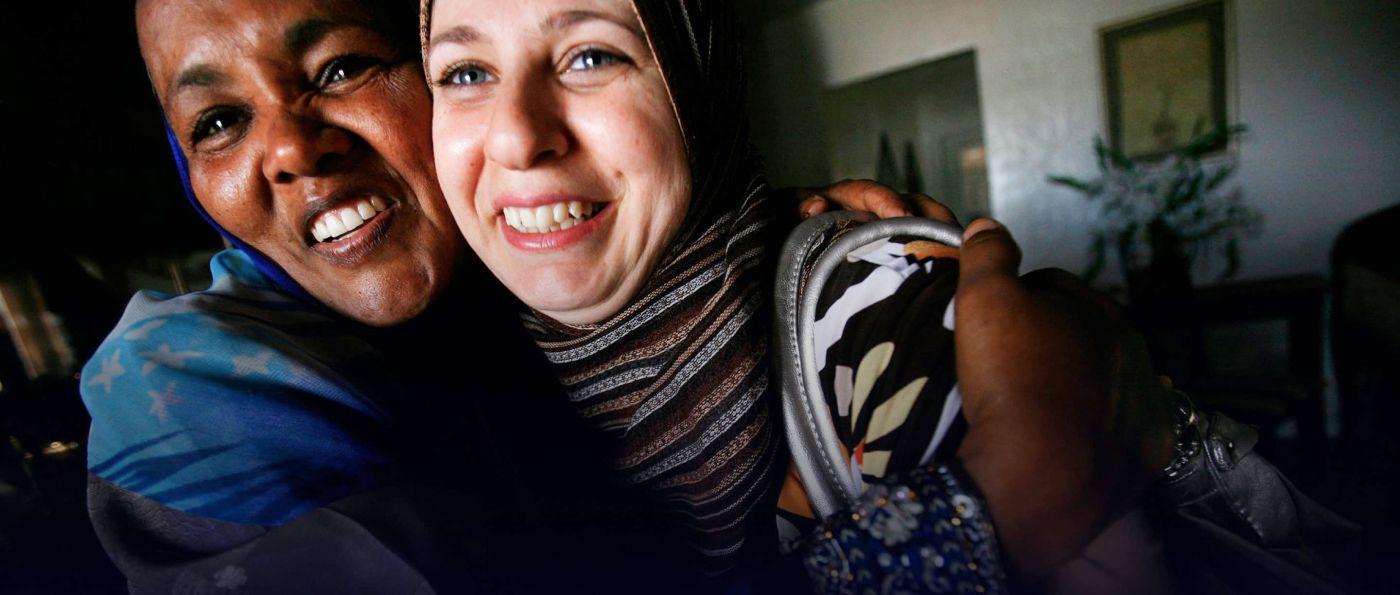Policy Updates
Get up-to-date information and expert guidance on recent changes to sponsorship pathways and our welcoming communities in 2026.

Recent policy news
Get a breakdown of the latest policy changes impacting immigration. Learn what happened, why it matters to Welcomers and newcomers, and how you can discuss these developments with others in your community.

Speak out for sponsorship programs
Ask your federal representatives to support community sponsorship by using our simple guide.
Policy explainers
What impact will policy changes have on newcomers, refugees, and sponsorship programs? Check out our latest explainers to learn more.

Parole termination resources
What if the person I'm supporting receives a termination notice or has an encounter with ICE? Use this resource hub for guidance.
Events
All Upcoming EventsOn Demand
Understanding recent immigration announcements and how to support our new neighbors
Event Details(Understanding recent immigration announcements and how to support our new neighbors)On Demand
Navigating Uniting for Ukraine re-parole and other status options
Event Details(Navigating Uniting for Ukraine re-parole and other status options)Featured FAQs
Answers to your questions about sponsorship, immigration, and welcoming under the new administration. This page will be updated as policy changes are announced.
How can the newcomers I sponsored safeguard themselves against detention and deportation?
Newcomers whose primary status is terminating should consult our guide to navigating alternative legal status, seek legal counsel immediately, and carry appropriate documentation including a signed Form G-28 which can be used to show that they are represented by an attorney. Newcomers also can consult this resource to understand their rights in the event of an ICE encounter.
How does H.R.1 impact newcomers’ eligibility for healthcare coverage?
The new law significantly restricts access to purchasing health insurance through the Affordable Care Act (ACA) marketplace and reduces federal tax credits lowering monthly health insurance premiums. The law excludes resettled refugees and asylees who do not yet have green cards, TPS holders, asylum applicants, and humanitarian parolees from eligibility for Medicaid, Medicare, the Children’s Health Insurance Program (CHIP), and the ACA marketplace. Only green card holders, Cubans and Haitians who entered the U.S. through humanitarian parole, and specific Pacific Island communities remain eligible for healthcare benefits.
What’s the latest on U4U?
As of Jan. 28, 2025, the U.S. government has paused the Uniting for Ukraine (U4U) program. No new U4U applications are being accepted, pending cases won’t be processed, and no new travel authorizations are being issued.
In Aug. 2025, U.S. Citizenship and Immigration Services (USCIS) resumed processing U4U renewal (re-parole) applications for Ukrainians who are here in the U.S. Ukrainian newcomers who have already arrived in the U.S. via U4U may be eligible for re-parole. However, the pause on new U4U applications for Ukrainians outside of the U.S. is still in place. For more information, see this guidance by the Ukraine Immigration Task Force on how to submit a re-parole application and when to consider expedited processing.
If your U4U beneficiary is still awaiting a renewal for parole or work authorization, we encourage you to contact your congressional representative and submit a constituency request for their staff to file a congressional inquiry to USCIS checking on the status of their case. You can reference our contact your representative guide to learn how to submit this request.
To understand eligibility for alternative legal status options, check out our guide to alternative legal options for humanitarian parolees and seek legal advice from an immigration attorney.
What’s the latest on CHNV?
On June 12, 2025, the Department of Homeland Security announced that it began sending termination notices for humanitarian parole status and work authorization to individuals who arrived in the U.S. through the Processes for Cubans, Haitians, Nicaraguans, and Venezuelans (CHNV) sponsorship program.
Individuals affected received notification through their myUSCIS account.
If a newcomer you know has been impacted by this decision:
- Get legal help immediately: All individuals with a primary status of humanitarian parole should consult an immigration attorney immediately. Find an immigration attorney through the American Immigration Lawyers’ Association search tool.
- Consult our parole termination resources hub, which includes resources to understand newcomers’ rights and possible next steps.
- Sponsors can consult our guide to alternative legal options for humanitarian parolees to seek professional legal counsel.
What does it mean that the Welcome Corps is terminated?
The Welcome Corps program was terminated by the State Department in late February 2025. This means that the Welcome Corps is no longer accepting new applications, and pending applications will not be processed or certified.
JOIN OUR WELCOMING COMMUNITY
Sign up for updates about Welcome.US, policy changes impacting newcomers, and how you can get involved.

